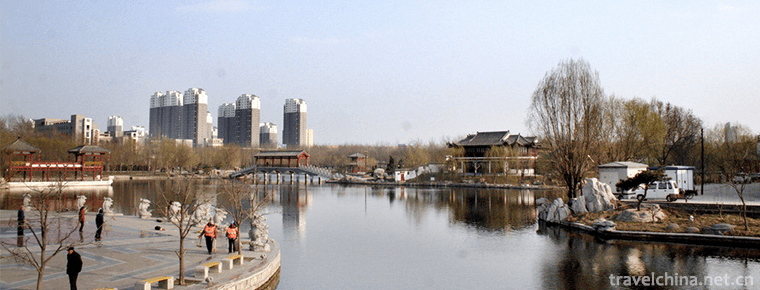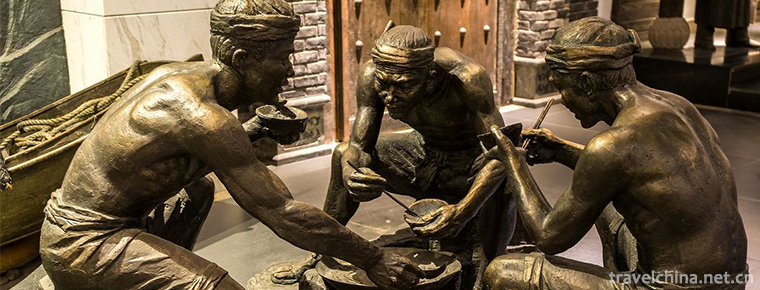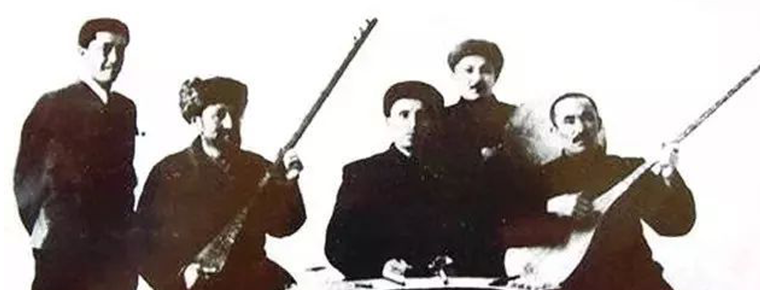2019-03-25

- By ChinaWiki.net
- Chinese Edition
- 2019-01-08
Dong Ziyuan Scenic Area
Dong Ziyuan Scenic Spot (AAAA Class Scenic Spot)
Government, is located in the eastern part of Dezhou City, and is the political and cultural center of Dezhou City. It has five township streets with a jurisdiction area of 320 square kilometers and a population of 290,000. He was awarded the honorary titles of "Shandong Excellent Development Zone" and "Shandong Excellent Civil Servants Collective" by Shandong Provincial Committee. In 2008, he was also awarded the provincial "Scientific Development Demonstration Zone" and "Shandong Open Advanced Park". In recent years, with the goal of building a strong cultural area and promoting the harmonious development of culture and economy, the development zone has taken various measures to actively promote and develop cultural undertakings, while striving to explore ways to speed up the development of cultural industries, which has become the window of opening to the outside world, the base of attracting investment and the important growth point of economic development in Dezhou.
Development history
Dongzi Reading Platform in Dezhou was built in Sui Dynasty and destroyed in the war during the Republic of China. On January 14, 2007, at the 6th meeting of the 15th National People's Congress of Dezhou, the bill on the reconstruction of the "Dong Zi Reading Platform" in Dezhou was adopted as the first motion of the conference. In accordance with the decision-making plan of exploring historical and cultural resources, developing cultural undertakings and creating regional economic and cultural highlands, the Party, Labor Committee and Management Committee of Dezhou Economic Development Zone began to rebuild Dong Zi's reading platform in September 2007, and built scenic park with rich cultural connotations as its core. The newly built Dongziyuan scenic spot covers 743 Mu and invests 500 million yuan. Among them, the first phase of the project includes the main building of the park, Dong Zi Reading Platform, the water memorial archway of Three Strategies Guben, and the Dongzi Cultural Street, Liuhu Academy, Fanlu Square, Juxian Pavilion, Anding Pavilion, Guangren Building, Hongyi Building, Chongli Building, Huizhi Building, Mingxin Building, Chunhui Garden, Liuhu Lake, Liu Pavilion and Xue in the west of the park. The "Shensi", "Yixing", "No Peeping Garden", "Tianhe Bridge", "Man and Bridge", "Land and Bridge", "Lixin Pavilion", "Zhengyi Bridge", "Mingdao Bridge", "Fanlutang", "Spring and Autumn Boat" and so on have all been completed and opened to the outside world. The second phase of the project is mainly an ecological wetland scenic spot in the eastern part of the scenic park. Affiliated buildings include Dong Zhongshu Memorial Hall, statues of Confucian cultural representatives, Dezhou Regional Cultural Square and so on.
The theme of the whole scenic spot is Confucian culture. The creative theme is "national rejuvenation and the rule of the world". It vigorously promotes Confucian ideology and culture. Meanwhile, it encourages young people to work hard and become the backbone of "virtuous Fangzheng" by proclaiming Dong Zi's spirit of "three years without peeping the garden". The scenic spot takes Dong Zi's reading desk as its main scenery and Shawang River system as its vein. It is built near the water and the scenery comes out with the water. All the artificial landscapes are traditional buildings with gray and white tones, reflecting the simple, concise and atmospheric architectural style of the Han Dynasty. The Dongzi Cultural Street on the west side and the original ecological garden on the east side are connected by rivers and close to rivers, reflecting the harmonious urban landscape between the humanistic architectural space and the natural ecological space.
Dongzi Reading Platform in Dezhou was built in Sui Dynasty and destroyed in the war during the Republic of China. On January 14, 2007, at the 6th meeting of the 15th National People's Congress of Dezhou, the bill on the reconstruction of the "Dong Zi Reading Platform" in Dezhou was adopted as the first motion of the conference. In accordance with the decision-making plan of exploring historical and cultural resources, developing cultural undertakings and creating regional economic and cultural highlands, the Party, Labor Committee and Management Committee of Dezhou Economic Development Zone began to rebuild Dong Zi's reading platform in September 2007, and built scenic park with rich cultural connotations as its core. The newly built Dongziyuan scenic spot covers 743 Mu and invests 500 million yuan. Among them, the first phase of the project includes the main building of the park, Dong Zi Reading Platform, the water memorial archway of Three Strategies Guben, and the Dongzi Cultural Street, Liuhu Academy, Fanlu Square, Juxian Pavilion, Anding Pavilion, Guangren Building, Hongyi Building, Chongli Building, Huizhi Building, Mingxin Building, Chunhui Garden, Liuhu Lake, Liu Pavilion and Xue in the west of the park. The "Shensi", "Yixing", "No Peeping Garden", "Tianhe Bridge", "Man and Bridge", "Land and Bridge", "Lixin Pavilion", "Zhengyi Bridge", "Mingdao Bridge", "Fanlutang", "Spring and Autumn Boat" and so on have all been completed and opened to the outside world. The second phase of the project is mainly an ecological wetland scenic spot in the eastern part of the scenic park. Affiliated buildings include Dong Zhongshu Memorial Hall, statues of Confucian cultural representatives, Dezhou Regional Cultural Square and so on.
geographical environment
Dong Ziyuan Scenic Area belongs to Dezhou Economic Development Zone. Dezhou Economic Development Zone, as a provincial economic development zone approved by Shandong Provincial People's Government, is located in the eastern part of Dezhou City, and is the political and cultural center of Dezhou City. It has five township streets with a jurisdiction area of 320 square kilometers and a population of 290,000.
Main attractions
The theme of the whole scenic spot is Confucian culture. The creative theme is "national rejuvenation and the rule of the world". It vigorously promotes Confucian ideology and culture. Meanwhile, it encourages young people to work hard and become the backbone of "virtuous Fangzheng" by proclaiming Dong Zi's spirit of "three years without peeping the garden". The scenic spot takes Dong Zi's reading desk as its main scenery and Shawang River system as its vein. It is built near the water and the scenery comes out with the water. All the artificial landscapes are traditional buildings with gray and white tones, reflecting the simple, concise and atmospheric architectural style of the Han Dynasty. The Dongzi Cultural Street on the west side and the original ecological garden on the east side are connected by rivers and close to rivers, reflecting the harmonious urban landscape between the humanistic architectural space and the natural ecological space.






Ask a Question
Your email address will not be published.



0 Questions